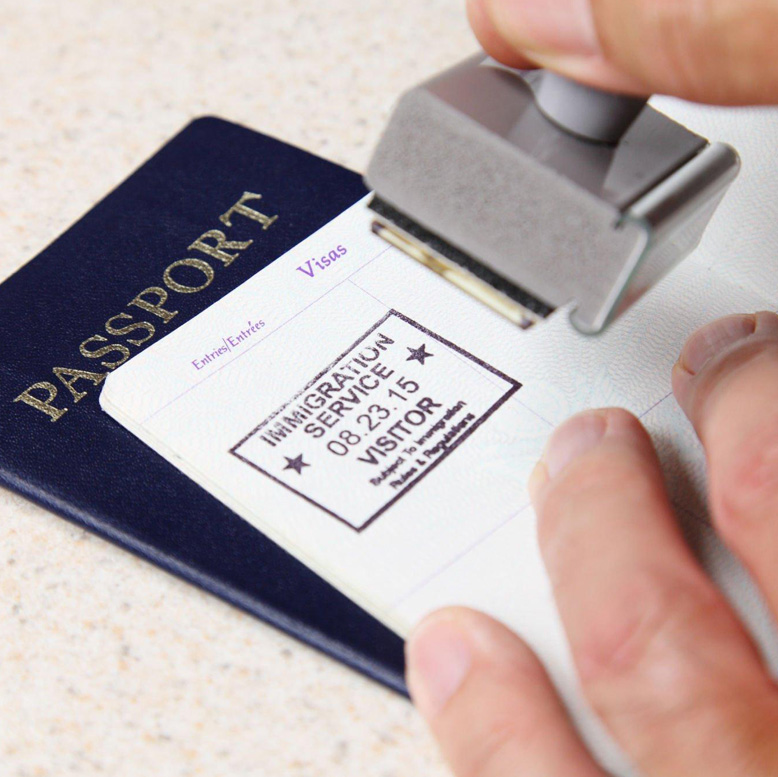Immigration Services

Removal Defense
Removal defense typically refers to legal proceedings in immigration cases, where an individual faces deportation or removal from a country. It involves various legal strategies to challenge the removal, such as asylum claims, waivers, or appeals.
Affirmative Asylum
Affirmative asylum is a process through which individuals who are not in removal or deportation proceedings in the United States can seek asylum to gain protection from persecution in their home country.
As immigration policies can change, it's essential to consult with an immigration attorney for the most up-to-date information on the affirmative asylum process.


Family Based Petitions
Family based petitions are a common way for individuals to obtain U.S. permanent residency (green cards) through family relationships. These petitions are typically filed by U.S. citizens or lawful permanent residents (green card holders) on behalf of their qualifying family members.
It’s crucial to consult with an immigration attorney to navigate the specific requirements and processes for family-based petitions, as they can be complex and subject to change. Additionally, the waiting times and eligibility criteria may vary based on the petitioner’s citizenship status and the relationship with the beneficiary.
U Visas
The U visa is a non-immigrant visa category in the United States designed to provide temporary legal status and protection to victims of certain crimes who have suffered mental or physical abuse and are willing to assist law enforcement in the investigation or prosecution of those crimes. The primary purpose of the U visa is to encourage victims to come forward and report crimes without fear of deportation.
It's crucial to consult with an immigration attorney or a legal advocate who specializes in U visa cases to understand your specific situation and navigate the application process effectively, as it can be complex. Additionally, U visa availability and requirements can change, so staying informed about the latest updates is essential.


VAWA
The Violence Against Women Act (VAWA) is a U.S. federal law that was originally enacted in 1994 and has been reauthorized and expanded several times since. VAWA was primarily designed to address and prevent violence and abuse against women and to provide support and resources to victims of domestic violence, sexual assault, dating violence, and stalking. However, it also includes provisions that extend protection to men who are victims of these forms of violence.
VAWA has been a critical piece of legislation in addressing and combating gender-based violence and providing support and legal remedies for victims. It's important to note that VAWA has been reauthorized and updated several times, so the specific provisions and protections may change with each reauthorization. Victims of domestic violence or gender-based violence who believe they may qualify for VAWA protections should consult with legal experts or organizations specializing in domestic violence and immigration issues for guidance.
Green Card/Citizenship
A green card, also known as a Permanent Resident Card, is a document that grants an individual the status of a lawful permanent resident in the United States. The process of obtaining a green card can be complex, and eligibility criteria vary depending on the category under which one applies. It’s advisable to consult with an immigration attorney to ensure that all requirements are met.
U.S. Citizenship is the highest legal status one can achieve in the United States and comes with numerous rights and responsibilities. Obtaining U.S. Citizenship is a significant milestone that carries both privileges and responsibilities. The naturalization process can be complex, seeking guidance from an immigration attorney is advisable.


DACA
DACA stands for Deferred Action for Childhood Arrivals. It is a U.S. immigration policy introduced in 2012 by the Obama administration. DACA provides temporary protection from deportation and work authorization to certain undocumented immigrants who came to the United States as children, often referred to as "Dreamers."
It's important to consult with immigration attorneys or qualified legal experts and stay informed about the latest developments regarding DACA, as the program's status can change due to legal decisions or government actions.
Motions to Reopen
A "Motion to Reopen" is a legal request made to the immigration authorities or immigration court to revisit or reconsider a previously issued decision in an immigration case. This motion can be filed by either the individual involved in the case or by the U.S. government.

